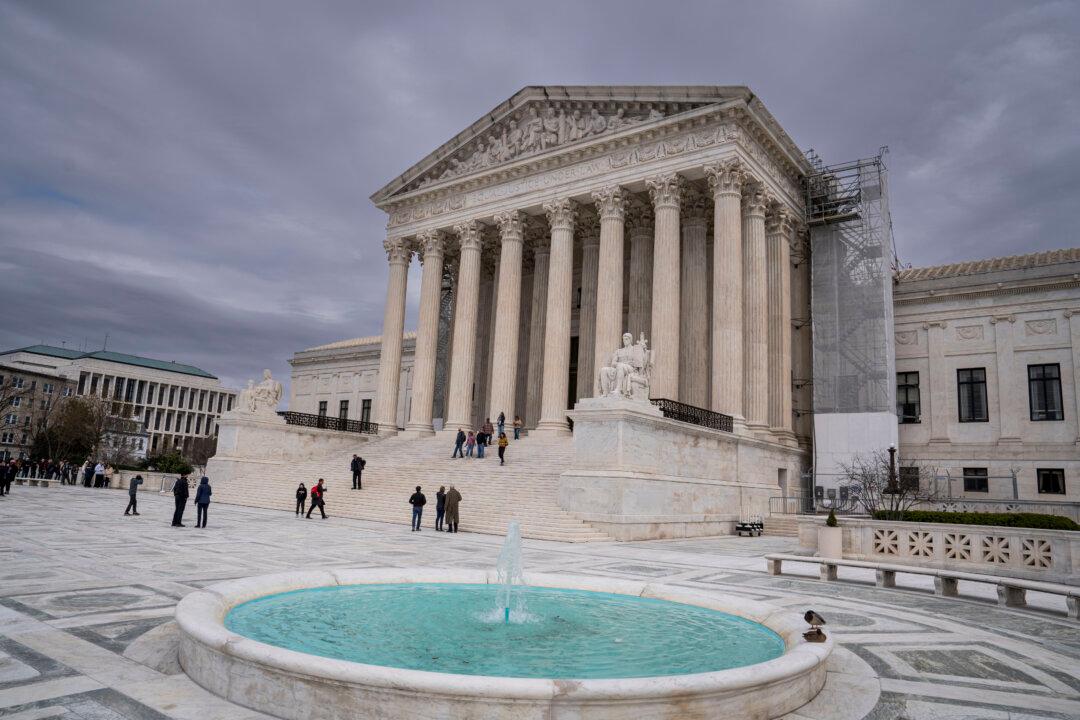The Supreme Court seemed unreceptive on April 15 to the Biden administration’s efforts to uphold the bribery conviction of former small-town mayor James Snyder.
The justices appeared willing during oral arguments to rein in the broad sweep of a public corruption law that civil libertarians say has been used overzealously by prosecutors in recent years. The law criminalizes the receipt of gifts by certain government employees.





